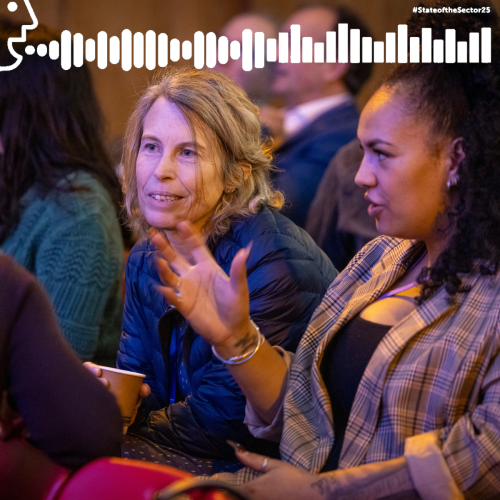The Lammy Review, published last month, once again highlighted the significant race inequalities in our criminal justice system. (You can read our statement on its findings and recommendations here and we will also be publishing a full briefing on the report shortly.) The Lammy Review is an independent review into the treatment of, and outcomes for black, Asian and minority ethnic (BAME) individuals in the criminal justice system.
Over the last two weeks Clinks has held two roundtable events at both Labour and Conservative Party Conferences to discuss the Review’s findings and recommendations. This is the first of a series of blogs following on from those events. Each week an attendee at one of the roundtables will write about their reflections on the review, in the context of their own position and sphere of influence, and what they plan to do in response to it. Keep an eye out for future blogs from David Lammy MP, Kate Green MP, Shaun Bailey AM, and PCC Paddy Tipping amongst others.
This first blog in the series provides a brief overview of what was discussed and key points of consensus across the two meetings.
What did we hear?
David Lammy MP spoke at both roundtable events. At the Labour conference he was joined by the Shadow Secretary of State for Justice Richard Burgon MP, and at the Conservative conference Sam Gymiah MP, Minister for Prisons and Probation. Members of Parliament, Police and Crime Commissioners (PCCs) and voluntary sector representatives from across the country attended both meetings.
Discussion at both events was lively and interesting with real commitment across politicians and the voluntary sector to undertake action to finally redress racial disproportionality in the criminal justice system. In particular, Police and Crime Commissioners highlighted the role they can play in instigating local action.
A clear thread running through the discussions was the role which the voluntary sector can play in supporting Lammy’s recommendations. Discussion of the importance of BAME organisations, who are rooted in the lived experience of the people they are working with, contrasted starkly with the finding from Clinks latest state of the sector survey that these organisations are 30% more likely to be at risk of closure. It was therefore welcomed that the Review draws attention to the fact that probation supply chains have not successfully brought in the expertise of BAME voluntary sector organisations.
Alongside this there was also recognition from larger voluntary sector organisations around the table that they must also play their part in ensuring that government now act on David Lammy’s recommendations and also make sure they lead by example within their own work.
There was a recognition that data is not consistently collected across the system and David Lammy’s recommendations on this, as well as those aimed at ensuring that data is properly understood and acted upon, were welcomed.
Both events discussed the glaring disproportionality present in the youth justice system and the potential for diversion schemes such as deferred prosecution, currently being piloted in West Midlands and Durha, also highlighted by the Review.
Participants welcomed the Review's recognition of the multifaceted nature of the BAME category and the specific needs for particular groups within it, such as Gypsy, Traveller and Roma people or people of Muslim faith. The Review's exploration of how being from a BAME background and in contact with the criminal justice system intersects with other issues such as gender, complex needs and family links and support was also welcomed.
There was a strong feeling from participants that it was important that the Review's recommendations be considered alongside other work being undertaken by the Ministry of Justice, including to develop a strategy for female offenders and respond to the Farmer Review into support for family links.
The Review’s focus on trust was welcomed, as was the need to remove the ‘us and them’ culture in the criminal justice system through improving the diversity of the workforce, alongside a call to ensure that all staff are culturally competent.
What next?
There is of course so much more in David Lammy’s Review that we could have discussed in further detail, including his recommendations for the courts, prison system and criminal records regime. However, there was a real feeling in the room that this was just the beginning of the conversation.
David Lammy was clear that he is committed to this agenda for the long term. Local and national politicians from both sides of the political divide were interested to continue to engage, discuss and ultimately work with voluntary sector partners and others to take action to finally begin to address the poorer outcomes faced by BAME people in our criminal justice system.
Clinks looks forward to publishing the reflections of other attendees at the events over the coming weeks and to working with our members and policy makers, politicians and criminal justice agencies to identify action and good practice that can drive change and improve equality in our criminal justice system.
What's new
Publications
Latest on X
The role is for a leader from an organisation focused on racially minoritised people, with expertise in service delivery, policy, advocacy, or related areas in criminal justice. Racial disparities are present at every CJS stage. This role ensures these voices are central in shaping policy to help address and eradicate them. Apply by Mon 18 Nov, 10am. More info: https://www.clinks.org/voluntary-community-sector/vacancies/15566 #CriminalJustice #RR3 #RacialEquity

